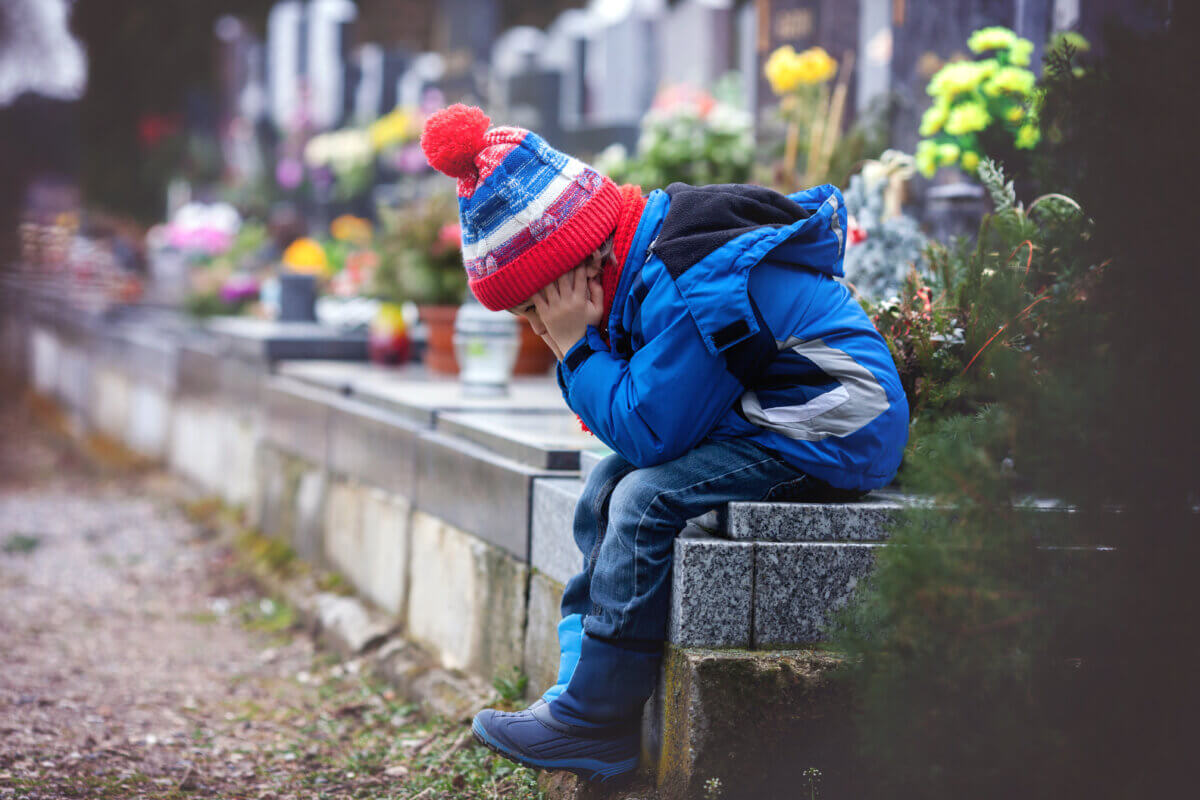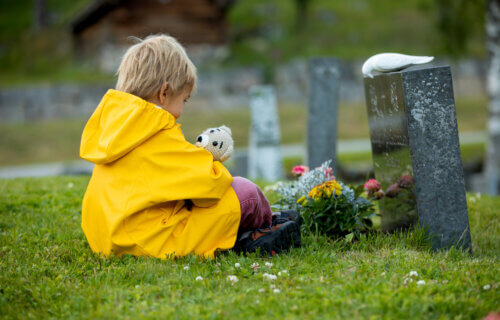JYVÄSKYLÄ, Finland — Losing a parent at any age is never easy, but when a child suffers the death of a parent before they grow up, it can be particularly devastating. Now, a new study finds these tragic events have a deeper and more long-term impact on boys than they do on girls.
Study authors from Finland and Ireland discovered a strong correlation between the premature loss of a parent and poorer mental health and lower income in adulthood for both sexes. However, these impacts were more pronounced among males.
Earlier research has suggested a connection between premature parental death and the future health and prosperity of their children. However, few studies had accessed high-quality registry data or evaluated cumulative effects or potential gender impacts.
The research team behind this new study utilized nationwide registry data from Finland. They examined whether experiencing the death of a parent before the age of 21 had a connection to poor mental health and weaker labor market outcomes between the ages of 26 and 30, and how gender might influence these outcomes.
The sample included over 960,000 Finns born between 1971 and 1986, all of whom were at least 30 years-old by 2016. The registry data included parental death certificates, as well as medical and educational records, sick leave periods, and tax returns for their children. Nearly all of these children completed their education and entered the labor market by the age of 30.
Approximately 15 percent of the sample experienced a parental death before turning 31. Less than five percent lost their mother, while nearly 12 percent lost their father. The likelihood of parental death increased with age, from less than one percent before the child reached the age of six, to just under five percent between the ages of 26 and 30. Fathers were almost three times more likely than mothers to die before their children turned 21.

The study found that a total of 65,797 people lost a parent before turning 21. This event displayed an association with higher chances of hospital admissions for mental health issues than those who experienced the death of a parent after turning 30.
Study co-author Dr. Petri Böckerman from the University of Jyväskylä in Finland notes that men appeared more vulnerable than women. Specifically, men were 70-percent more likely to be hospitalized, compared to 52 percent for women. Substance use disorders and intentional self-harm were the most common reasons for hospitalizations, with the numbers varying by gender.
Boys and young men who lost their mothers prematurely were almost two-and-a-half times more likely to be admitted to a hospital for intentional self-harm than those who lost their mothers in their 30s. Similarly, girls and young women who lost their father prematurely were nearly twice as likely to develop a substance use disorder.
The research also found that a mother’s early death had an association with an 88-percent increase in stress disorders. Medication use for mental health disorders among those who lost a parent prematurely was between 18 and 33 percent higher for both sexes. Furthermore, sick leave was more likely among both genders.
Loss of a parent before the age of 21 was also connected with fewer years of schooling, lower annual earnings, and increased periods of unemployment between the ages of 26 and 30 for both sexes.
Girls who lost their mothers prematurely experienced the largest reduction in years of schooling, equivalent to more than half an academic year. The early death of a father displayed a link to an almost 16.5-percent decrease in annual earnings and a six-percent decrease in the likelihood of regular employment among men. Among women, those declines were 11 and four percent, respectively.
The study’s authors noted that the strength of the study lies in its use of nationwide population data, comprehensive monitoring, and both secondary and primary care psychiatric health records.
“Early parental death is strongly associated with a higher risk of children’s poor mental health in adulthood for both males and females, but the estimated odds ratios are usually quantitatively larger for males,” the researchers conclude in a media release.
The team adds that losing a parent prematurely “is negatively associated with children’s labor market outcomes (i.e., employment and earnings) in adulthood, and these associations are quantitatively larger for males.”
The study is published in the Journal of Epidemiology & Community Health.
You might also be interested in:
- Are your affairs in order? What to do now — before you die
- Despite COVID fears, half of Americans still don’t have a last will and testament
- Grief can be deadly: Losing loved ones can increase risk of heart problems
South West News Service writer Stephen Beech contributed to this report.

